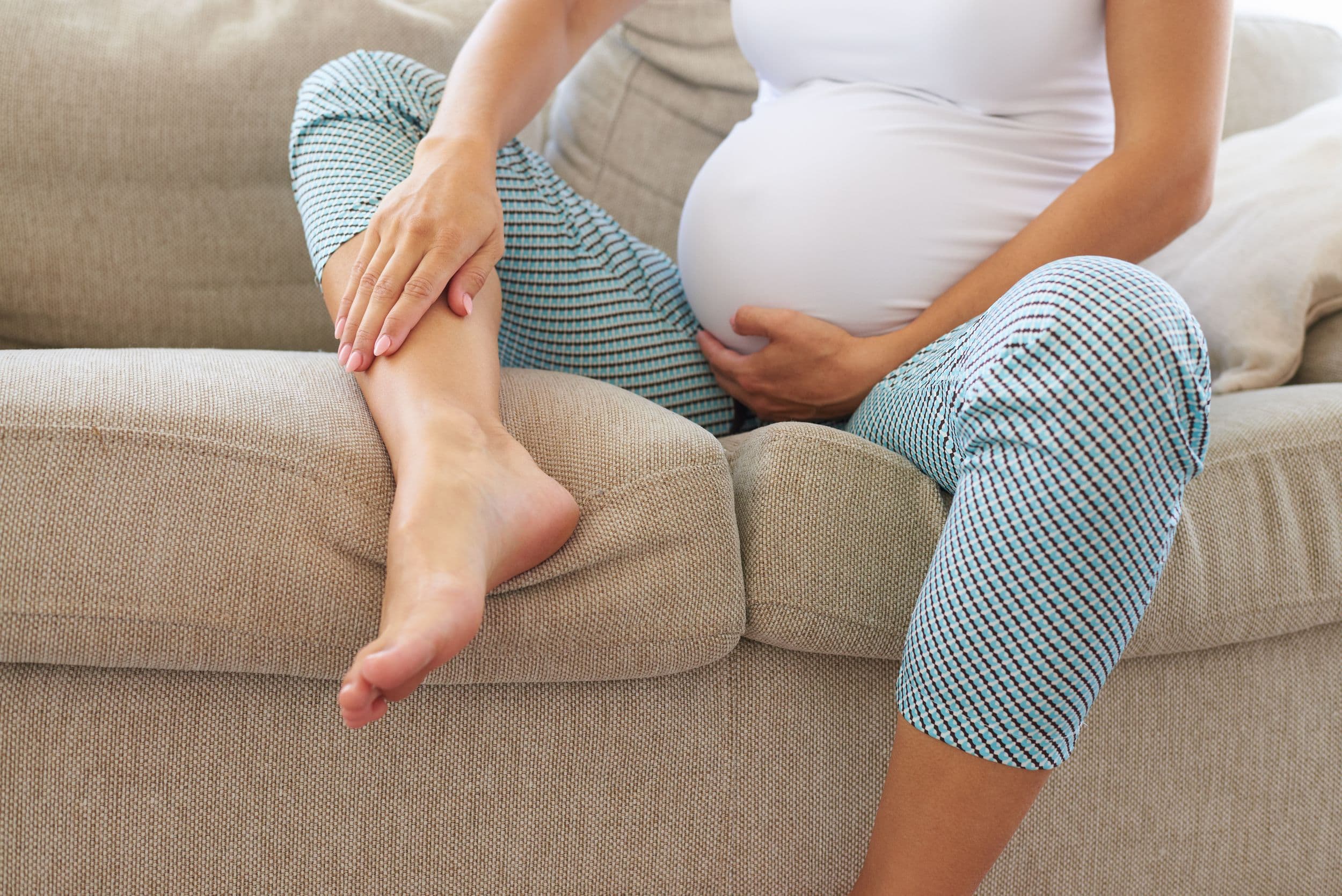Swollen Ankles: How to Ease the Pain During Pregnancy
Pregnancy Symptoms
Obie Editorial Team

You may not be able to see them by the end of the pregnancy, but your ankles are down there and they are holding the pressure of the world. Well, maybe not the pressure of the world, but the pressure of your pregnancy. Ankle swelling is a part of pregnancy most women experience at some time or another. Slight swelling can be expected, but severe ankle swelling can be caused by something more than the natural effects of pregnancy.
What causes ankle swelling?
Ankle swelling is most commonly caused by increased water retention and production. Something that happens normally during most pregnancies. The body needs more fluid during pregnancy so it holds on to more and that means edema or swelling. Ankles tend to show swelling more prominently because walking and sitting for long periods allows water to collect in the extremities.
Other factors that may contribute to ankle swelling include pressure on veins due to uterine growth causing slower blood flow and changes in estrogen, progesterone and other reproductive hormones.
How can I avoid ankle swelling?
If you are experiencing ankle swelling, try are few simple changes to ease swelling — at least temporarily.
- Prop up your feet when sitting.
- Sit down for 15 minutes once per hour.
- Try to prop up your feet.
- If you are at home or work (and you have access to a sofa or loveseat) try lying down with your feet above your heart for a few minutes every hour.
- Drink some more water, but not too much. Water intake does not increase swelling; one of the best natural treatments for swelling is drinking more fluids. Usually, 8-10 cups of fluids are recommended. However, stick with water as coffee and soft drinks may contain sugar and caffeine, which should be consumed in moderation during pregnancy.
- Ask your partner for a foot and leg massage. Prop up those feet and sit back for a little relaxing massage. Not only will the massage increase circulation, but so will the elevation of your feet. Even if the massage does not relieve all your ankle swelling symptoms, it sure feels great.
When is ankle swelling considered dangerous?
If you experience any of the following symptoms, seek medical attention immediately:
- Severe ankle swelling
- Ankle swelling that occurs out of nowhere
- Swelling of just one ankle
- Red, irritated skin that feels hot to the touch
- Headache or abdominal pain
Most of the time ankle swelling is just one of those annoying symptoms of pregnancy that you just have to live with until the pregnancy is over, but it can also be a sign of an underlying condition like preeclampsia, so keep your doctor informed of all ankle swelling changes.
Read More









